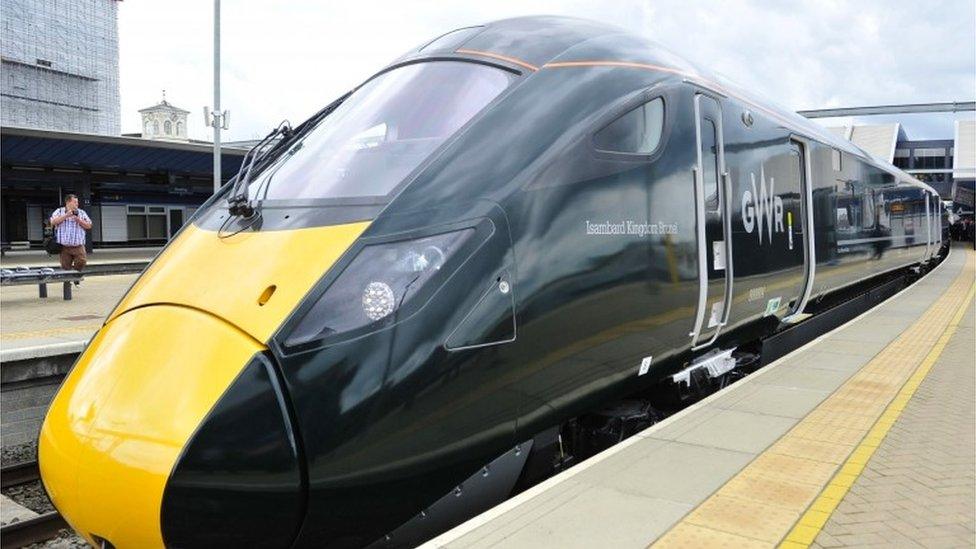Queen's funeral: Mourners faced severe rail delays to London and Windsor
- Published
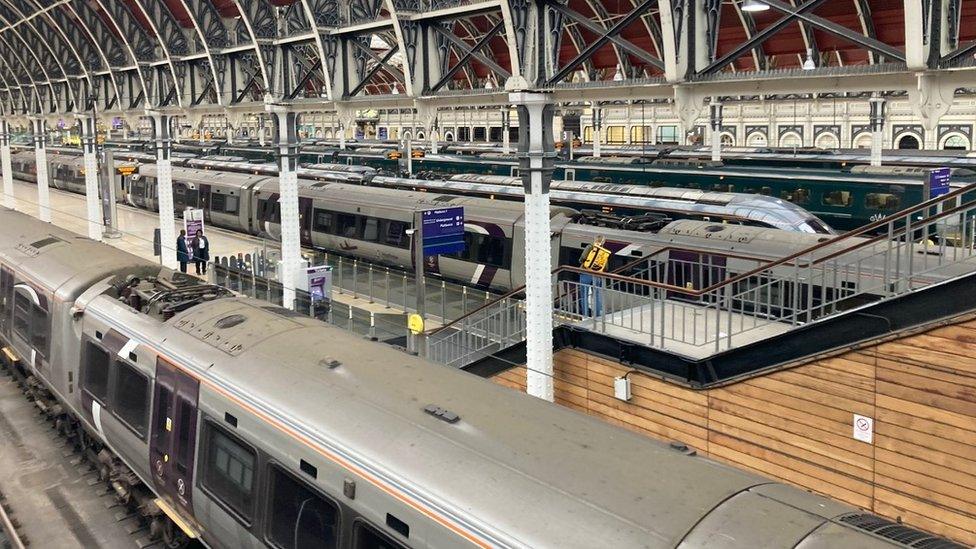
Trains are at a standstill at London Paddington
People travelling home from the Queen's state funeral and procession have faced severe disruption on the railway.
No trains have been able to run in or out of Paddington station, west London, since 06:30 BST because of damage to overhead electrical wires.
People heading to Windsor for the funeral proceedings there were also affected by the cancellations.
Services are likely to be disrupted on Tuesday and passengers are advised to travel from Reading to London Waterloo.
Large queues also formed at London Waterloo earlier as people tried to make their way home from the capital.
Allow X content?
This article contains content provided by X. We ask for your permission before anything is loaded, as they may be using cookies and other technologies. You may want to read X’s cookie policy, external and privacy policy, external before accepting. To view this content choose ‘accept and continue’.
Great Western Railway (GWR), Heathrow Express and Elizabeth line services have all been affected by the disruption in west London.
No trains have been able to run between West Drayton/Heathrow Airport and London Paddington.
South Western Railway services were also cancelled or delayed between Windsor & Eton Riverside and Datchet during the afternoon because some level crossings needed to be held for the Queen's funeral convoy to pass through.
A service for the Queen took place at Westminster Abbey earlier and a sombre funeral procession carried Her Majesty's coffin from the abbey, through central London to Wellington Arch.
Viewing areas in the capital closed by about 09:30 due to overcrowding.
The Queen's coffin then arrived at Windsor Castle, where another procession took place.
Although thousands entered London to see the state funeral and procession, Network Rail said footfall at major London railway stations was 49% down on the same period last Monday.
It said it believed the numbers coming in for the funeral did not make up for the workers that have not come into London.
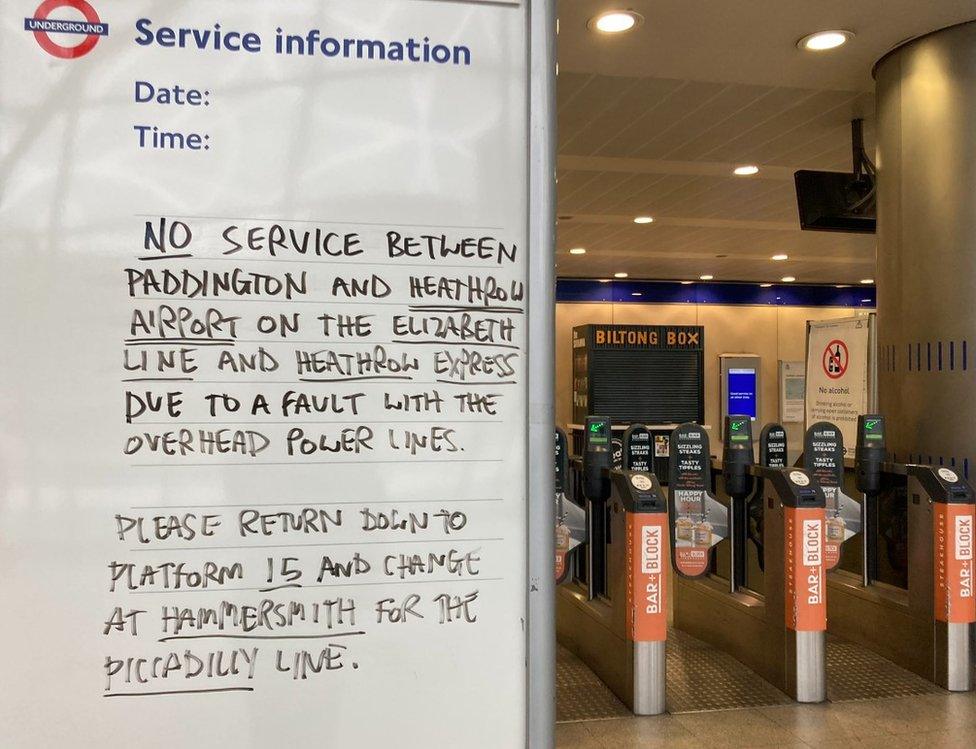
Many of those affected had hoped to secure a position to see the funeral procession in London
Barry Boffy, from Bristol, was supposed to be attending the funeral as an invited guest in the Abbey and was on a train to Paddington when passengers were told they had to disembark at Langley station, in Slough, and "make your own way".
The former head of inclusion and diversity at British Transport Police (BTP) said he was given a lift from the station but, with numerous roads closed in the capital, was unable to get to the venue in time.
Nevertheless, he said he felt "pretty philosophical about these things", as "ultimately there's not anything I can do about it".
"I think it's still a huge honour and privilege just to be invited, so I will treasure that," he added.
Choir echoing in carriages
On one stuck train earlier, the sound of the choir at Westminster Abbey could be heard echoing through the carriages as mourners watched the service on their smartphones.
Bev Palfreman, 61, from Okehampton, Devon, said she was "absolutely gutted" about not reaching the capital for the start of the funeral because, "the Queen has just been there throughout the whole of my life".
"This was the only thing I wanted to do."
Gaby Thomas, 29, who travelled from Castle Cary, Somerset, with her father, said: "My dad is a former naval officer and he wanted to see the procession and the military involved.
"It's just about being there. We were meant to arrive in Paddington at about 08:30. We are still hoping to catch the end of the procession."
She added it was "a typical British thing to happen".
Passengers on another severely delayed Paddington-bound train were told by a member of staff on the public address system: "My sincerest apologies for the delays on such an important day for the country."
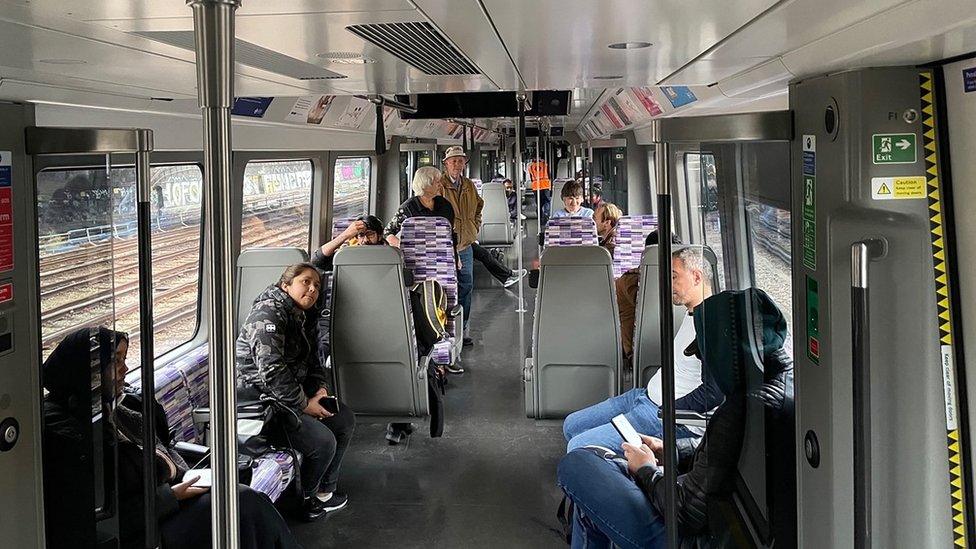
Passengers on an Elizabeth Line train were stuck outside Royal Oak station due to the disruption
BBC London transport correspondent Tom Edwards said two miles (3.2 km) of electrical lines had been damaged around Hayes and Harlington station.
Repairs will be carried out overnight but disruption is likely to continue into Tuesday morning.
Dean Shaw, from Network Rail, told BBC Radio Bristol an investigation into the cause of the problem was still taking place but it was hoped some diesel trains might be able to run on routes between Reading and Slough while electrical problems remained.
Network Rail advised:
Passengers in London should travel via London Waterloo to Reading and change at Reading for train services west
Passengers in Windsor traveling to London should travel via Windsor & Eton Riverside to London Waterloo
Passengers in Windsor travelling West should travel from Windsor & Eton Central to Slough and change at Slough for mainline services to Reading and onwards
A service is running between West Drayton and Reading about every 30 minutes, but there is a normal service running east from Paddington to Abbey Wood and Shenfield
Lines between Reading and Newbury were also closed after an incident on the line, causing some GWR trains to be diverted and further delaying journeys to the capital.
The disruption came during one of the UK's biggest transport operations as mourners descended on London and Windsor.
A Network Rail spokesman said: "We are very sorry for the disruption which we expect to continue throughout the day.
"We are working hard to get services running as soon as possible and passengers are strongly advised to check before they travel.
"We will continue to update passengers as the situation develops."



- Published19 September 2022
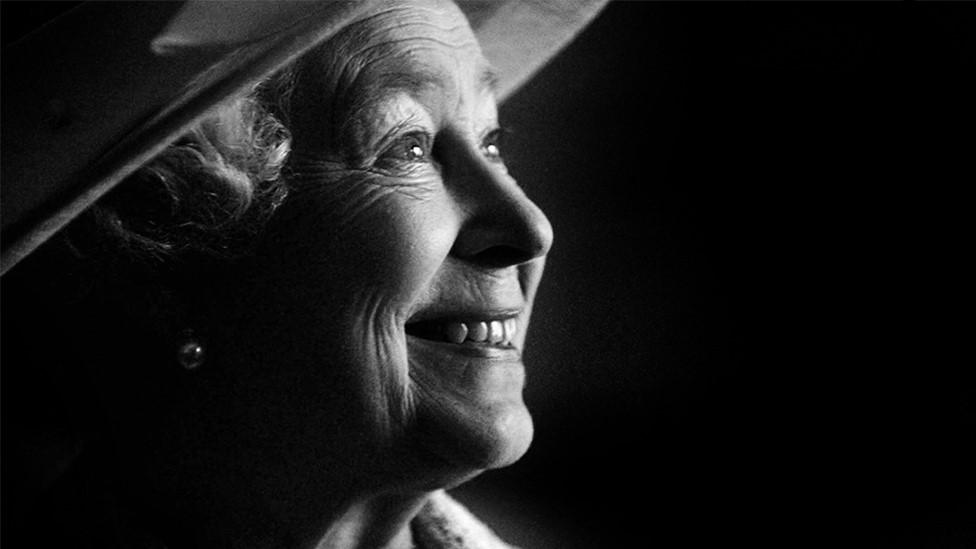
- Published17 September 2022
